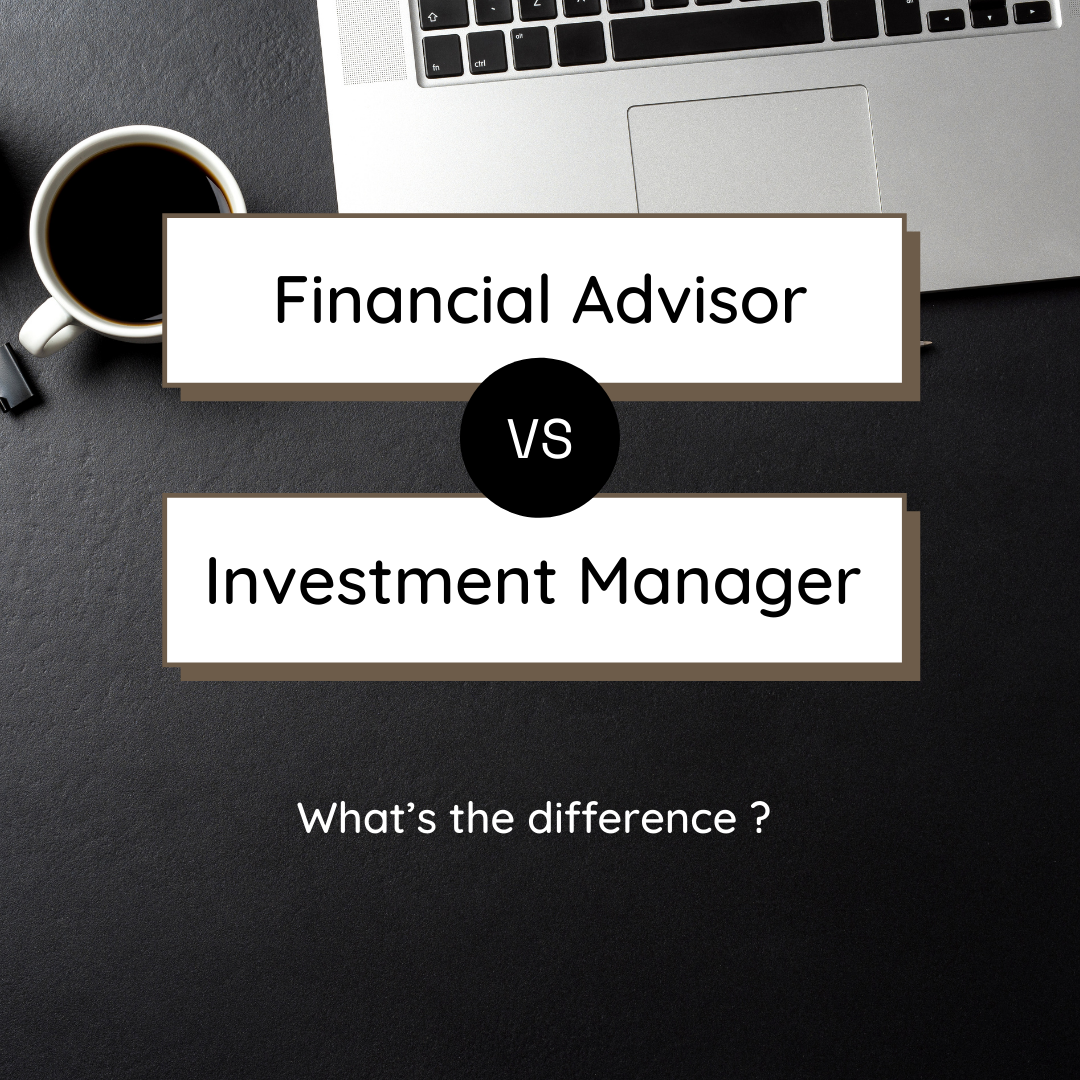
Understanding the difference between the role of a financial adviser and an investment manager isn’t always easy. It is one of the many confusing elements of the financial world and to top it off, we like to add the term ‘wealth manager’ in there too! However, when it comes to the health of your investments and your financial goals, knowing the difference between a financial adviser and investment manager is vital to help you make key decisions about the help or service you need.
Financial advisers
What is a financial adviser and why do I need one?
Many people work with a financial adviser if they want to make a plan about their financial futures. This will often include:
- Making big decisions about when you want to or can retire
- Paying a mortgage off early
- Saving into a pension
- Exploring insurances
- Exploring tax issues like capital gains tax or inheritance tax
- Funding one goal at the expense of another
- Exploring your level of risk in terms of what you can invest and where
A financial adviser can tell you about the products that may work for you that will suit your individual goals and create a plan to help you meet these financial and lifestyle objectives using the resources available. Any advice should be relevant to the goals you agree upon.
Types of financial adviser
Any adviser you look to work with should be authorised and regulated by the Financial Conduct Authority (FCA) whether they work for themselves or as part of a larger group.
They will either be:
- An Independent Financial Adviser (IFA) meaning they should give you impartial, unrestricted advice that considers every financial product on the relevant market.
- A restricted adviser or firm can only recommend certain products, product providers, or both. This can mean you are offered only products from one provider or from a very narrow range of providers.
You can read more about the different types of investment advisers on the FCA website here.
Regardless of the type of adviser they are, they can only introduce you to the people/providers who will actually invest your money, whether you want a pension, investment bond or ISAs etc.
Whilst using a financial adviser can be an important part of arranging your investments it will mean there are going to be a number of different parties involved in the transaction, for example the adviser, the investment company, the actual investment manager – which can make your advice and investment solutions expensive.
Investment Managers
What do Investment Managers do?
Investment Managers are specialists. They are also known as asset managers or fund managers and seek to make their clients’ money grow.
They are the people who manage the money you invest once it’s in a particular product or portfolio, they will either set up products for you or invest the money held in products created by an adviser. They can, however, explain everything you might need to know or consider about particular products and can give investment advice.
Essentially, if you went straight to an Investment Manager rather than a financial adviser, you would cut out the middle man and avoid incurring an extra set of charges and fees. That said, if you want to talk through a plan on how to meet particular goals, then talking with a financial adviser is a useful step you shouldn’t miss out.
Are Investment Managers more experienced with giving Investment Advice?
An investment manager is likely to be far more experienced in the investment world than a financial adviser who will spend their career assessing suitable investment providers using data such as past performance. Investment managers will be working with the markets on a daily basis and be much more connected with what’s going on in the world that may affect investment performance. Investment managers can deal with all the complexities that arise from investing and will also be regulated and authorised by the FCA. Their experience will be based upon making actual investment decisions and they have a more direct connection with investment markets.
In the UK, nearly all financial service activities must be authorised by the Financial Conduct Authority. You can search the Register here to ensure anyone you have dealing with has the right permissions.
Wealth Managers
This is an umbrella term that could mean either a Financial Adviser or an Investment Manager. If anyone introduces themselves as a Wealth Manager, then you should ask questions to ascertain exactly what they can do for you and your money.
Middleton Private Capital
We are investment managers and actively manage your money with a strong focus on controlling risk in all our portfolios. We keep costs low and our team of analysts help us to make the best investment decisions considering the current economic environment, the focus of investment markets and the strength of the assets themselves.
We too are authorised and regulated by the FCA and you can learn more about our authorisation here.
The FCA website will show you the complete history of the adviser or investment manager you are thinking of using along with a complete list of what they are authorised to do.
At Middleton Private Capital, our primary objective and responsibility is to help our clients grow and preserve their wealth by maximising investment returns.
So, if this blog has helped you realise you want to work with an investment manager to help you achieve your financial goals, we would be delighted to discuss what we do and how we do it.
Click here for more information about how we can get started.
Middleton Private Capital Ltd is authorised and regulated by the Financial Conduct Authority, No. 804197. All investments contain risk, the value of investments can go down as well as up and investors should be aware they may not get back the full amount invested.

